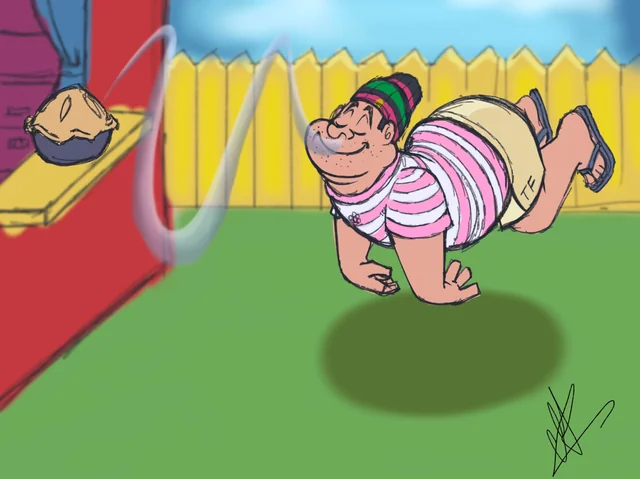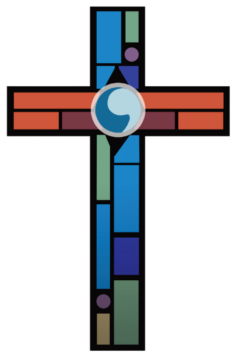This story, often called the story of the Syrophoenician woman, is one of the many stories told in the Gospels, which are repeated in more than one Gospel.
In this case, we have a version in Mark 7:24-30, which is brief. There’s another version of this story in Matthew. Both Mark and Matthew put this story in a similar context.
But what is this story about? Is it a story of a casting out of a demon? Is it a story of a non-Jewish woman talking with the Jewish rabbi and coming away looking smart and victorious, where his disciples look like fools? Not right in that story, but in the larger context, they certainly do not seem terribly competent.
Is this a story about demons, children, bread, and dogs? Is this a story about a mother’s love for her daughter? Is this a story about faith? Matthew says so. Mark never uses the word. Is it about bread and leftovers? Is it about having a place at the table and greater sharing?
I think that it’s all of these things. And I think that it is also a cue for us not to take no as an answer, even when we’re talking with God. Also, it alerts us to seek God’s abundance wherever it may be found. I think of the words in the song “Oh, I Know the Lord’s Laid His Hands on Me”, some seek the Lord, but don’t seek him right.
This story is placed in a context, in both Matthew and Mark, between a feeding of 5,000 people with 12 baskets left over and a feeding of 4,000 people with seven baskets left over.
At the end of both Matthew’s version and Mark’s version, Jesus tweaks his disciples, saying, Don’t you understand? Didn’t you get this? We fed 5,000 people and had 12 baskets left over. We fed 4,000 people and had 7 baskets left over. Don’t you get it? First of all, it’s not about bread.
This is the context between these two stories about bread is a story, of all things, about bread, about demons, children, bread, dogs. This is a story about a feast. It’s a little bit disguised.
We have several words in this story about the Syrophoenician woman that point to banqueting. One is that the master’s table from which the crumbs slip down to the dogs. In Greek, that’s the very word that’s used of a banqueting table. It’s a specialty word in Greek. It refers to a banqueting table.
When the girl is recovered from the demon, she’s placed, in some translations, a bed, some say a couch, and the word in Greek is the word that’s used for the couch upon which people recline at a feast. What has happened is that at the end, the healing is not just that the demon has left, but that the daughter is placed reclining for the feast.
This story is also preceded in both Matthew and Mark by a curious debate.
Jesus is in Galilee, which is north of Israel. It’s in the modern country of Israel near to the border with Lebanon. Jerusalem is far south, but some elders and Pharisees have come out from Jerusalem to meet Jesus, specifically to grill him on the way that his disciples eat with, it’s often translated as, unclean or defiled hands.
Now, the word in Greek is “Koinon”, which means common or shared. The problem with the disciples is that they’re eating with just anybody. They’re not eating like good Jews are supposed to eat. Separating themselves from everybody else. Cleaning themselves of the common dirt of the world. Blessing the food at the beginning. Blessing the food at the end. Following a careful protocol. Jesus’ disciples don’t do that.
Now here’s Jesus in immediately the next little section of text. Meeting with a woman who is not a Jew. She’s a single woman. She’s a single mom. She’s got a problem. Her daughter has a demon. She comes to Jesus because she figures that he can help. He’s been helping all kinds of people with problems. So she comes to him. She doesn’t get someone as a middle person. She doesn’t have a male relative who comes to him. This means basically that she’s living on her own. She is isolated. Possibly by her daughter’s affliction.
She has a real problem. She has a real need. At first, Jesus response to her seems kind of strange. Because he says you don’t need help with the demon. There is no demon. He doesn’t dismiss her. He says it’s not right to give the children’s bread to the dogs.
It sounds like Jesus is being a little mean. I have heard in the past year, like four sermons on this, that really dwell on Jesus use of the word dogs. As though he is accusing this woman of being a dog. Which, maybe he is. But it’s also quite possible that just having come from this debate with the Pharisees about defilement and what makes one clean or unclean, which he says is what comes out of you and not what goes into you that makes you clean.
If you remember that from a couple of weeks ago, now he’s faced with this woman and he says this thing, and I think that we could interpret this as being a bit of irony. Matthew reports that Jesus is with his disciples and they play kind of gatekeeper role. But in Mark, it’s just the woman and Jesus. Still, I think that we can imagine that his disciples are with him when Jesus says it’s not right to throw the food of the children to the dogs. With maybe a little sly look at his disciples to see whether they got the message which is to share with everyone.
The woman at any rate does get it. She sees this as a riddle and she answers it in a riddle fashion. She says, even the dogs get crumbs. Just maybe, she understands what the disciples don’t. Which is that Jesus is talking about sharing and he is talking about food, but he’s also talking about bread in a cosmic sort of way, in a, you might say philosophic sense, that it is that which gives one life, and that is the abundance of God. Amen.
It is the property of God that God is abundant, but one of the things that is difficult to grasp is that God’s abundance is not everywhere and in all places at all times.
I think of one of those nature documentaries, you know with David Attenborough, maybe. Here, the fig tree has come into its full ripeness, and now the monkeys feast for the day. But, when the figs have all gone, the monkeys are left with nothing, and they must go to the next fig tree, which is ten kilometers away. And how do they find it? By the smell of it.

Well, what is the smell of it, but the wind, the breath, the spirit in the same way we need to be directed to God’s abundance wherever we can smell it out and be guided to it by the Holy Spirit reaching to us. If you ever remember those cartoons where the odor of the pie would come to the person and draw them away, we should be drawn by the Holy Spirit to God’s abundance.
This woman has recognized that, she gives a proper answer. If you are receiving the bread of life, what’s the difference between a big slice and a crumb? It’s infinite. It’s God’s eternity. You can’t break it down into pieces. The crumb will be enough.
Now, let me say that there is an abundance of riches in these five verses, which I am not plumbing here.
I would be delighted to discuss this at much greater length with anyone who was interested. But now, I want to come back to the basic point. We are called to change our minds. That’s the meaning of repentance.
It is, in Greek, it is “Metanoia”, to change the mind. We are called to change our mind. God’s rule is all around us. We do not need to fear scarcity. If we seek God’s abundance, we will find it. We must find ways to seek God’s abundance and support others in their search.



